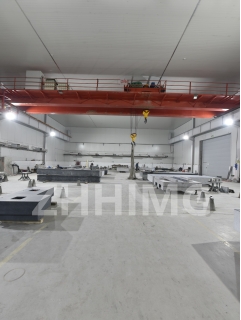Traditional measuring tools and coordinate measuring machines (CMM) are both used for dimensional measurement, but there are significant differences in technology, accuracy and application. Understanding these differences is critical to selecting the most appropriate measurement method for specific manufacturing needs.
Traditional measuring tools, such as calipers, micrometers, height gauges, etc., are hand-held instruments that rely on manual operation. They are suitable for simple measurements and are often used in small-scale manufacturing environments. In contrast, a coordinate measuring machine is a complex computer-controlled system that uses probes to measure the physical properties of an object with high precision. CMM's ability to capture a large number of data points makes it ideal for complex geometries and high-precision measurements.
One of the main differences between traditional measuring tools and coordinate measuring machines is the level of accuracy. Traditional tools have limitations in terms of accuracy, often providing accuracy within a few microns. CMMs, on the other hand, can achieve sub-micron accuracy, making them suitable for industries that require extremely tight tolerances, such as aerospace and automotive manufacturing.
Another key difference is the speed and efficiency of measurement. Traditional tools require manual operation and are often slow compared to CMMs, which can automatically scan and measure multiple points on a workpiece in a fraction of the time. This makes CMMs more efficient for mass production and complex parts.
Additionally, the versatility of measurement is a notable contrast between traditional tools and CMMs. While traditional tools are limited to linear measurements and simple geometries, CMMs can measure complex 3D shapes and contours, making them suitable for inspecting complex parts and performing comprehensive quality control inspections.
In summary, traditional measuring tools are suitable for basic measurements and small-scale operations, while CMMs offer advanced capabilities in terms of accuracy, speed and versatility. Understanding the differences between these two measurement methods is critical to selecting the most appropriate solution to meet specific manufacturing requirements.
Post time: May-27-2024

